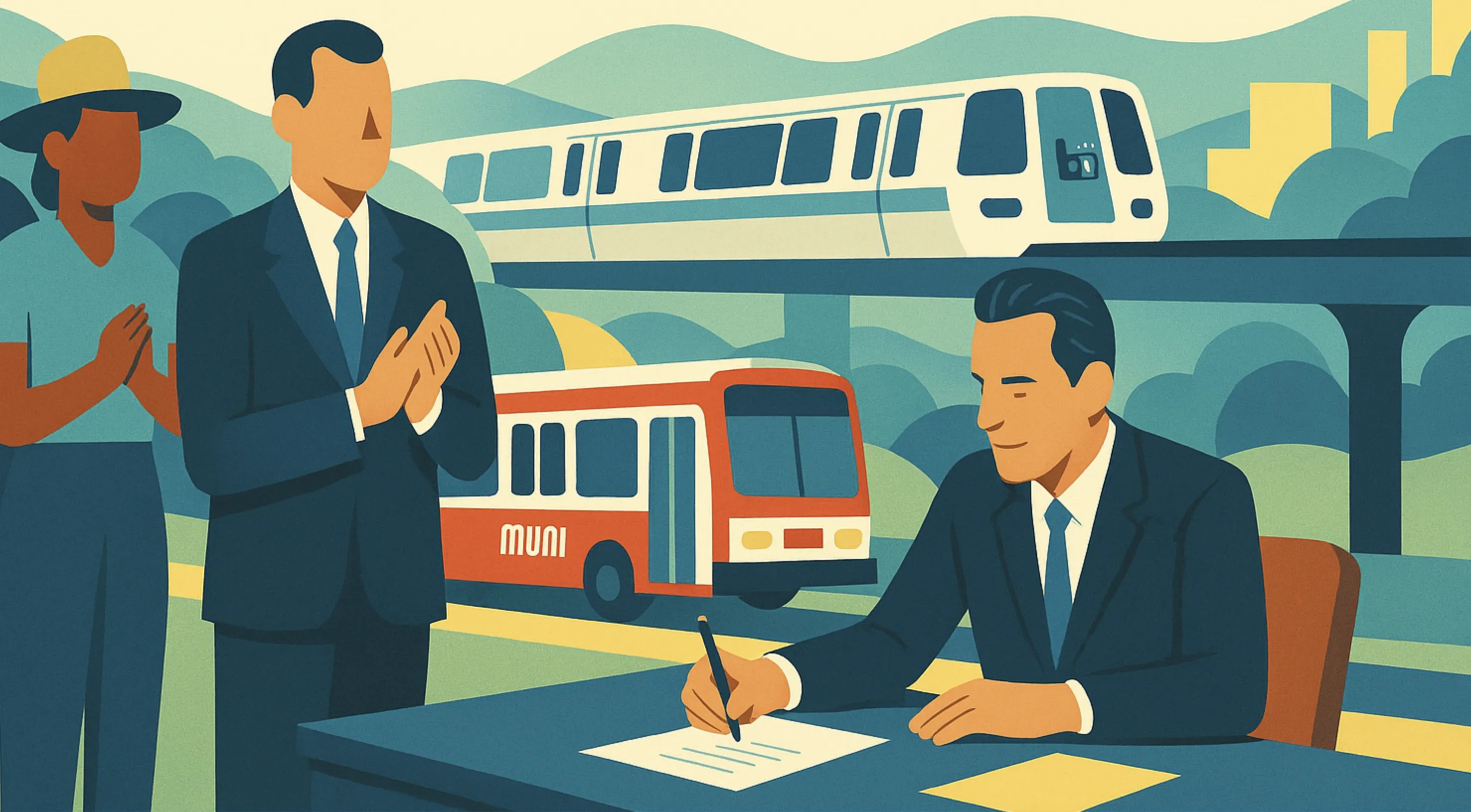
The Facts
The big Muni and BART funding bill will officially be on the ballot next November.
Governor Gavin Newsom signed Senate Bill 63 on October 13, authorizing Bay Area transit agencies to place a sales tax measure on the 2026 ballot to close a massive budget shortfall. The legislation, authored by state Senators Scott Wiener and Jesse Arreguín, would add a half-cent sales tax in four neighboring counties and a full cent in San Francisco, according to Hannah Wiley at The Standard.
The measure targets an impending fiscal cliff: SFMTA faces $300+ million annual deficits beginning in July 2026, while BART projects deficits up to $400 million per year beginning in 2027. Without new revenue, Muni would have to slash service frequency by 50% on many lines, and BART could run trains as infrequently as once per hour.
State law requires legislative authorization before regional agencies can place tax measures on local ballots. SB 63 provides that authority. In addition to this regional measure, Mayor Daniel Lurie separately announced plans for a parcel tax for Muni on the same November 2026 ballot.
The Context
The funding crisis stems from the end of federal COVID emergency bailouts, combined with a slow and incomplete ridership recovery. While Muni ridership reached 75% of pre-pandemic levels by 2024, BART has recovered less than half of its pre-pandemic ridership, leaving both systems with huge operating shortfalls.
But even full recovery wouldn't solve the problem. Even if Muni ridership returned to 100% of pre-COVID levels with inflation-adjusted fares, fare revenue would only grow an additional $100 million annually, closing just one-third of SFMTA's $320 million deficit. Similarly, full parking recovery would only add $70-90 million yearly, still leaving SFMTA with a funding gap of approximately $100 million annually, even under best-case scenarios.
The crisis exposes structural funding vulnerabilities. SFMTA relies heavily on San Francisco's General Fund—its largest single funding source—supplemented by fares, parking fees, and grants. BART depends on sales tax revenue for roughly 40% of its operating budget, with the remainder from fares and other sources. These revenue streams are vulnerable to economic downturns, ridership fluctuations, and changing travel patterns, and generally are not keeping up with inflation and rising operational costs.
The GrowSF Take
This legislation provides critical tools to address a genuine structural funding gap that goes beyond operational inefficiencies. The math is stark: even with perfect ridership and parking recovery, Muni would still face a $100+ million annual deficit due to revenue growing slower than inflation impacting operating costs.
Our transit agencies should continue pursuing operational reforms—consolidating administrative functions, modernizing fare systems, and implementing performance-based budgeting, but these improvements alone can't bridge a gap this large. The city needs sustainable, diversified revenue streams that grow with inflation.
Beyond emergency tax measures, longer-term solutions could include congestion pricing, employer transit taxes, value capture from transit-oriented development, or dedicated state funding. But for now, this sales tax measure is a necessary investment in preserving the transit infrastructure that keeps San Francisco, and the whole Bay Area economy, functioning.
Generate a Personalized Email to the Board of Supervisors
To:
Sign up for the GrowSF Report
Our weekly roundup of news & Insights